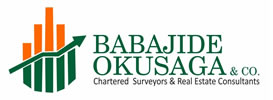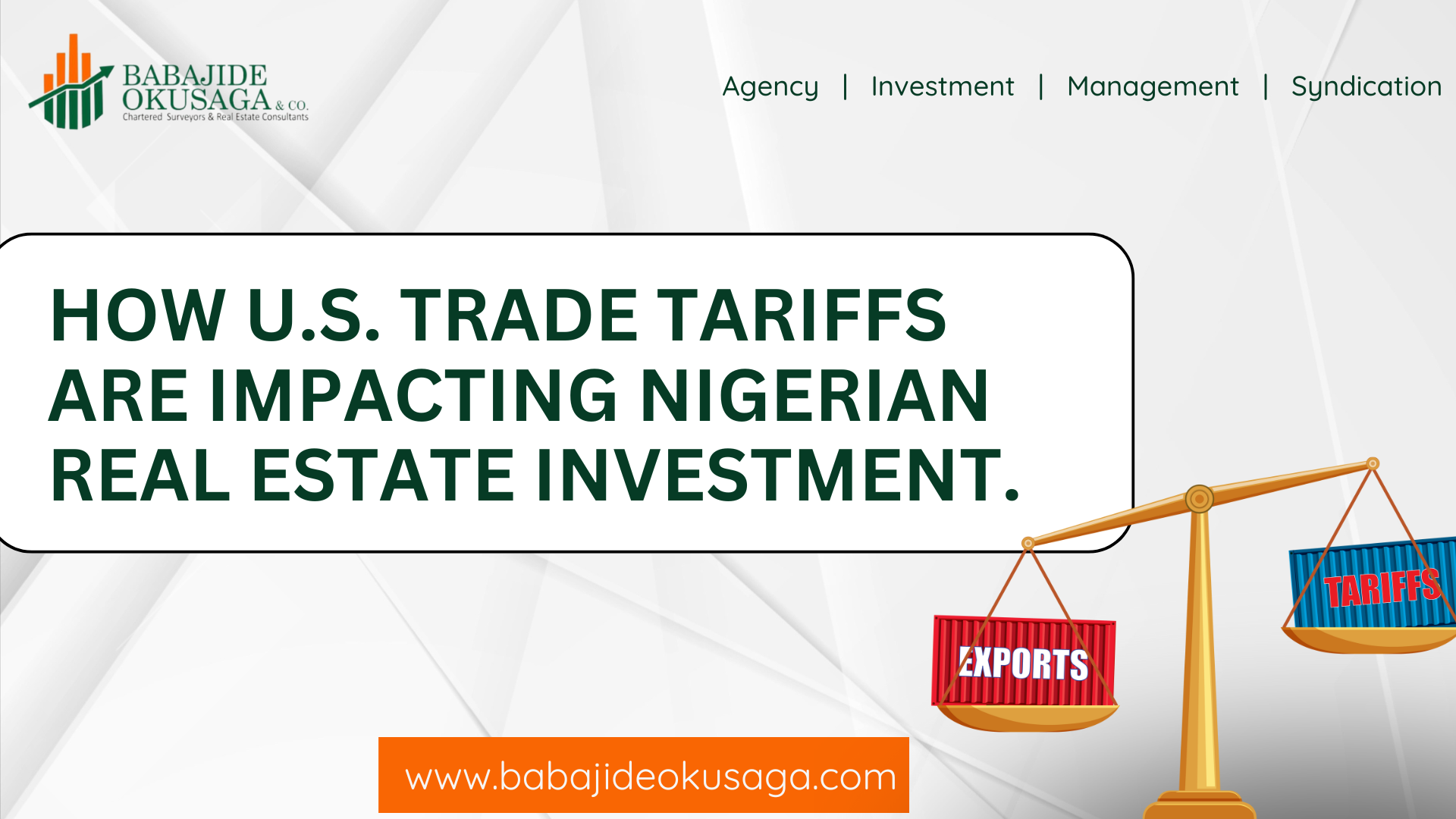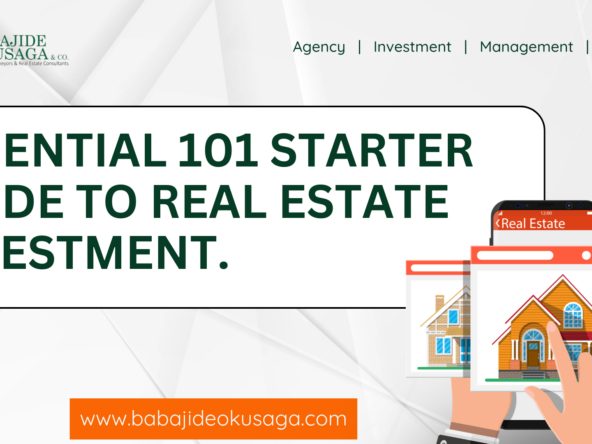The U.S. administration’s decision to increase tariffs on Nigerian goods from 10% to 14% sent shock waves through various sectors of Nigeria’s economy, including real estate development. These tariffs directly target trade but their indirect consequences are being felt even in Nigeria’s property market, and especially among developers who rely heavily on diaspora investments and imported construction materials.
Effect on Real Estate in Nigeria
1. Strain on Diaspora Investment
Nigerian real estate developers have long benefited from investments made by Nigerians living abroad. These diaspora investors often fund residential and commercial projects, because they view them as secure and profitable ventures. However, the recent U.S. tariffs have introduced economic uncertainties that affect these investors’ disposable incomes. With increased costs of Nigerian goods in the U.S., diaspora Nigerians may face financial constraints, leading to reduced investments back home. This decline in funding can stall ongoing projects and deter the initiation of new developments.
2. Escalating Construction Costs
The real estate sector in Nigeria is heavily dependent on imported construction materials like steel and aluminum. U.S. tariffs on these materials have disrupted global supply chains, leading to increased prices. For Nigerian developers, this means higher costs for essential building components. Consequently, developers are faced with tough choices: absorb the additional costs, which can erode profit margins, or pass them on to consumers, making properties less affordable.
3. Inflationary Pressures and Market Volatility
Nigeria’s inflation is manifested in increased prices for land, labor, and construction materials among others . Such inflationary pressures can lead to market volatility, making it challenging for developers to plan and execute projects effectively. Unpredictable costs can result in project delays, reduced quality, or even project cancellations, further destabilizing the real estate market.
4. Reduced Affordability for End-Users
As the construction costs rise, the prices of finished properties will definitely increase. This escalation makes housing less affordable for the average Nigerian, increasing the existing housing deficit. Potential homeowners may find themselves priced out of the market, leading to decreased demand and potential oversupply in certain segments. This imbalance can have long-term implications for the sustainability of real estate investments.
5. Strategic Shifts and Adaptation
In response to these challenges, Nigerian real estate developers are exploring alternative strategies. Some are sourcing materials locally to mitigate the impact of import tariffs. Others are targeting different investor demographics or focusing on affordable housing projects to cater to a broader market segment. Additionally, there’s a big emphasis on financial planning and risk assessment to walk around the uncertainties introduced by global trade policies.
The U.S. trade tariffs, while not directly aimed at Nigeria’s real estate sector, have created a cascade of challenges that developers must now overcome. Wiith strategic planning, adaptability, and a focus on local resources, real estate developers can mitigate these challenges and continue to thrive in this changing global economic environment.
Babajide Okusaga & Co are Chartered Surveyors and Real Estate Consultants with expertise in Agency, Investment, Management, and Syndication (AIMS). We are known for being client-focused and results-driven, aiming to connect clients with their specific real estate needs such as Investments, Sales, Letting, Joint Ventures, and Partnerships.
We dedicate time and energy to ensure clients’ satisfaction by helping them find the best-suited real estate solutions. Whether it’s leasing office space, financing a first home, purchasing a new factory, or managing an investment portfolio, Babajide Okusaga & Co caters to the considerations of corporate entities, individuals, and High Net Worth Individuals (HNIs).
Contact 02013423872 for Enquiries.
Read next-




